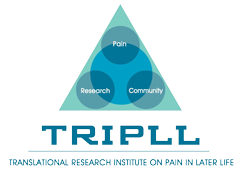Authors: ©Jason Fanning, Amber K Brooks, Edward Ip, Barbara J Nicklas, W Jack Rejeski. Originally published in JMIR Research Protocols (http://www.researchprotocols.org), 14.05.2018.
BACKGROUND:
Chronic pain is a complex, age-related health issue that affects both physical functioning and quality of life. Because the impact of chronic pain is worsened by obesity and inactivity, nonpharmacological interventions that promote movement, reduce sitting, and aid in weight loss are needed to help manage pain symptoms among older adults with chronic pain.
OBJECTIVE:
The Mobile Intervention to Reduce Pain and Improve Health (MORPH) pilot trial aims to develop and test the feasibility and acceptability of a novel, patient-centered intervention to reduce chronic pain and improve physical functioning in older adults, leveraging the combination of telecoaching and individually adaptive mHealth tools to decrease both body mass and sedentary behavior.
METHODS:
MORPH comprises 2 phases, including a 1-year iterative development phase, and a 1-year pilot randomized controlled trial (RCT). During the development phase, representative participants will engage in one-on-one structured interviews and a 1-week field test. The resulting feedback will be used to guide the development of the finalized MORPH intervention package. During the second phase, the finalized intervention will be tested in a pilot RCT (N=30) in which older adult participants with chronic pain and obesity will be assigned to receive the 12-week MORPH intervention or to a waitlist control. Primary outcomes include self-reported pain symptoms and physical function.
RESULTS:
Phase 1 recruitment is ongoing as of December 2017.
CONCLUSIONS:
The MORPH intervention brings together a strong body of evidence using group-based behavioral intervention designs with contemporary mHealth principles, allowing for intervention when and where it matters the most. Given the ubiquity of smartphone devices and the popularity of consumer activity and weight monitors, the results of this study may serve to inform the development of scalable, socially driven behavioral pain management interventions.
TRIAL REGISTRATION:
ClinicalTrials.gov NCT03377634; https://clinicaltrials.gov/ct2/show/NCT03377634 (Archived by WebCite at http://www.webcitation.org/6yj0J5Pan).
REGISTERED REPORT IDENTIFIER:
RR1-10.2196/9712.
KEYWORDS:
chronic pain; mindfulness; sedentary lifestyle; technology; weight loss
To read the full article, click here.
